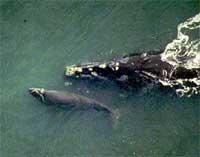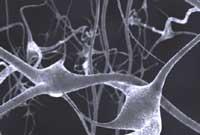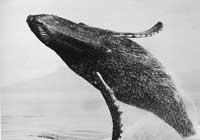Saved by her mother, the whale can survive
2001/11/29 Galarraga Aiestaran, Ana - Elhuyar Zientzia
These two scientists have studied more than 10,000 whales of the genus Eubalaena since 1980 and have discovered that whales are the most at risk. In fact, the whale population is declining widely and mortality increases when females become mothers.

Since 1980 the population of whales is declining and it is estimated that only 300 remain worldwide. The population decline is mainly due to the clash with ships, the chained in networks and climate change. Breeding females also swim closer to the coast and sea surface and move more slowly than other adults, making them more vulnerable. Therefore, in 1980 a female had a life expectancy of 50 years and at that time could have more than 6 offspring. Now, having a life expectancy of only 15 years, he has no more than two children.
However, in the study conducted there is a place for hope. They say that if we manage to save two females a year, the population would increase. As a result, whales call for protection of breeding areas. U.S. National Maritime Fishing Service is about to create new laws that prevent fishing in areas close to the southeast coast, but international traffic and maritime legislation make it very difficult to fulfill this claim.

Gai honi buruzko eduki gehiago
Elhuyarrek garatutako teknologia






